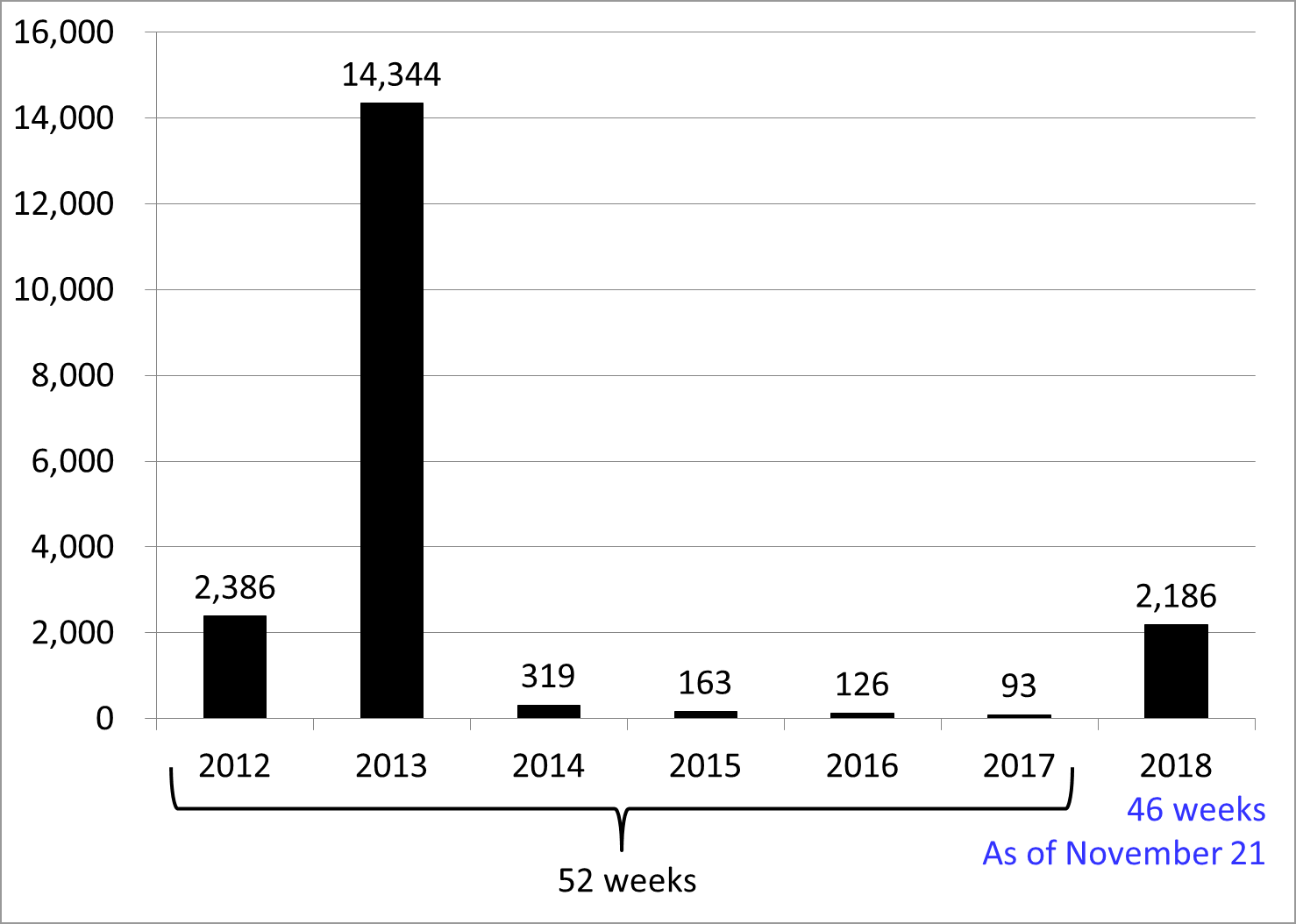Column Finance and the Social Security System 2018.12.11
【Aging, safety net and fiscal crisis in Japan】No.142: Rapid Increase of Rubella-Infected Patients
In Column No. 131, (Measles Epidemic Brought on by Foreign Tourists), I took up the fact that the number of measles-infected patients was increasing in 2018. Fortunately, since the number of measles-infected patients, with 164 people in 21 weeks (as of May 27), is 255 in 46 weeks (as of November 21), it seems that we could prevent the infection explosion. Instead, rubella is nearing an infection explosion. Therefore, in October, the US government agency, CDC, recommended that pregnant women should refrain from traveling to Japan until the spread of infection has subsided if they are not vaccinated against rubella.
As the figure 1 shows, Japan experienced an explosion of rubella infection in 2012 and 2013. With the effect of subsequent measures, the number of infected people in 2017 was only 93 people. However, the number of people infected in 2018 is likely to exceed the 2,386 recorded in 2012. Therefore, the National Institute of Infectious Diseases issued an emergency alert in November.
The important points extracted from the alert are as follows.
(1) Rubella is a disease that can be prevented by a vaccine. Most recent rubella patients are part of a group that did not receive the vaccine in the past and does not have the antibody because this group has never been infected with the rubella virus.
(2) If a woman is infected with the rubella virus until about 20 weeks' gestation, a child with congenital rubella syndrome may be born. Congenital rubella syndrome means that fetuses infected with the rubella virus may have damage to the eyes, ears, and heart. Inoculation of rubella-containing vaccine during pregnancy is prohibited, and it is necessary to avoid pregnancy for two months after receiving it. Therefore, it is important for women to receive two vaccines before pregnancy and to vaccinate people who are around pregnant women.
(3) The antibody holding rate of women of pregnancy age is kept high at approximately 95% or more. On the other hand, the rate for adult males is low, especially in the late 30s (84%), 40s (77%-82%), and early 50s (76%). Most rubella patients in 2018 are males in these age groups.
Figure 1: Number of rubella infected patients

Source: National Institute of Infectious Diseases
